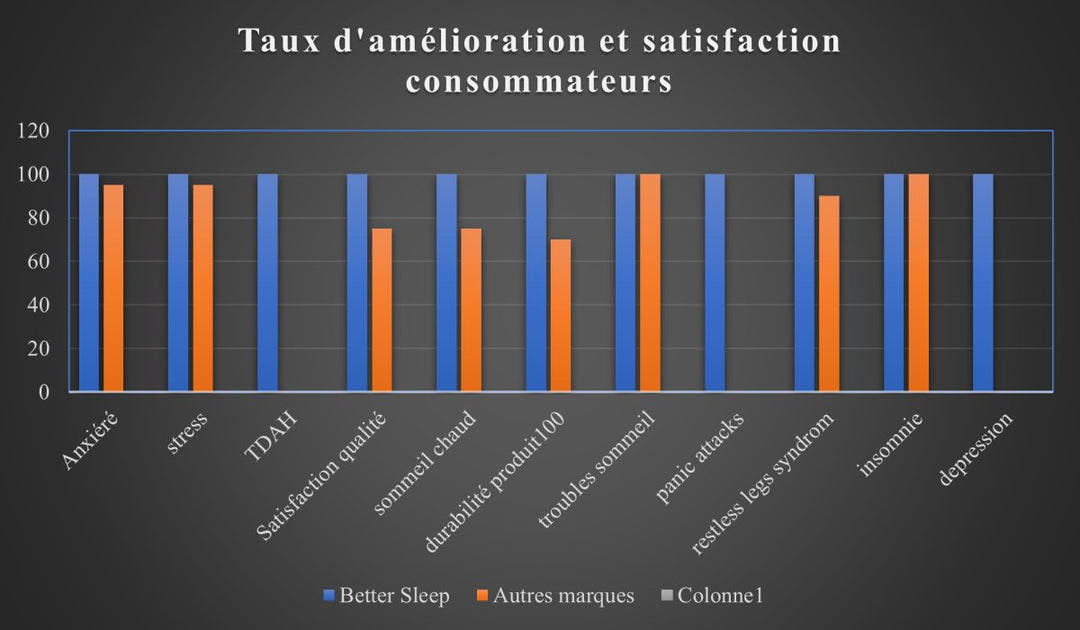Exploring The Detrimental Effects Of Sleep Deprivation On Your Health
Introduction: Understanding The Impact Of Sleep Deprivation On Health
Sleep is an essential component of our daily lives, serving as a vital period for rest and rejuvenation. However, in today's fast-paced world, many individuals find themselves sacrificing precious hours of sleep to accommodate their busy schedules. The consequences of this growing trend are becoming increasingly concerning, as mounting evidence reveals the detrimental effects of sleep deprivation on overall health. Sleep deprivation refers to the condition where an individual consistently fails to obtain sufficient sleep.
While occasional nights of inadequate sleep may not have significant consequences, chronic sleep deprivation can have severe implications for physical and mental well-being. Research has shown that insufficient sleep can impact various aspects of health, including cognitive function, emotional stability, immune system efficiency, and cardiovascular health.
Understanding the impact of sleep deprivation on health is crucial to raising awareness about the importance of prioritizing adequate rest.
By delving into the underlying mechanisms and effects associated with sleep deprivation, we can gain valuable insights into how it affects our bodies and minds. This knowledge will enable us to make informed decisions regarding our sleeping habits and implement strategies to counteract its detrimental effects. In this article, we will explore in-depth the various ways in which sleep deprivation impacts our overall health.
Common Sleep Disorders: Identifying The Culprits Behind Sleep Deprivation
Sleep disorders have become increasingly prevalent in today's fast-paced society, contributing to the rising epidemic of sleep deprivation. These disorders can disrupt the quality and quantity of our sleep, leading to a range of detrimental effects on our overall health. Understanding the culprits behind sleep deprivation is crucial in addressing these issues effectively. One common sleep disorder is insomnia, characterized by difficulty falling asleep or staying asleep throughout the night. It can be caused by various factors such as stress, anxiety, or certain medications.
Sleep apnea is another prevalent disorder that involves interrupted breathing during sleep due to a blocked airway or improper brain signaling. This disruption often leads to frequent awakenings, leaving individuals feeling fatigued and unrested.
Restless leg syndrome (RLS) is yet another condition that can significantly impact sleep quality. It causes an uncontrollable urge to move one's legs, usually accompanied by uncomfortable sensations in the limbs. RLS can make it difficult for individuals to relax and fall asleep peacefully.
Narcolepsy is a neurological disorder characterized by excessive daytime sleepiness and sudden bouts of uncontrollable sleep attacks. These episodes can occur at any time and greatly disrupt daily activities, impairing overall productivity.
The Vicious Cycle: Lack Of Sleep And Its Detrimental Effects On Your Health
Sleep deprivation is a widespread problem that affects millions of people worldwide. Unfortunately, the consequences of not getting enough sleep extend far beyond feeling groggy and tired the next day. In fact, a lack of quality sleep can lead to a vicious cycle that negatively impacts your overall health. One of the primary detrimental effects of sleep deprivation is its impact on cognitive function.
When you don't get enough sleep, your ability to concentrate, think clearly, and make decisions becomes compromised. This can affect your performance at work or school and increase the risk of accidents due to impaired judgment. Additionally, chronic sleep deprivation has been linked to an increased risk of developing various physical health problems. Research suggests that inadequate sleep can weaken the immune system, making you more susceptible to illnesses such as colds and flu.
It can also contribute to weight gain, as it disrupts hormonal regulation related to appetite control. Furthermore, ongoing sleep deficiency is associated with an elevated risk for developing chronic conditions like diabetes, heart disease, and high blood pressure. These conditions not only have long-term implications for your health but also increase the likelihood of experiencing other complications later in life.
Unraveling Sleep Patterns: How Disrupted Circadian Rhythms Affect Your Well-Being
The circadian rhythm, often referred to as our internal body clock, governs a wide range of physiological processes, including sleep-wake cycles, hormone production, and metabolism. When this delicate balance is disrupted due to sleep deprivation, the detrimental effects on our well-being become increasingly apparent. Sleep deprivation disrupts the regularity of our circadian rhythms, throwing our bodies into disarray. Our natural sleep patterns become irregular and fragmented, leading to difficulties falling asleep or staying asleep throughout the night.
This disruption not only impairs our ability to obtain the recommended amount of restorative sleep but also interferes with essential bodily functions. Research has linked disrupted circadian rhythms to an increased risk of various health problems. Chronic sleep deprivation is associated with an elevated risk of developing cardiovascular diseases, obesity, diabetes, and even certain types of cancer. It can also weaken the immune system and impair cognitive function.
Furthermore, disruptions in circadian rhythms can impact mental health by contributing to mood disorders such as depression and anxiety. The delicate balance between neurotransmitters responsible for regulating mood can be thrown off-kilter when we consistently lack adequate sleep. Understanding how disrupted circadian rhythms affect our well-being emphasizes the importance of prioritizing healthy sleep habits.
Disturbing Factors: Identifying External Influences That Disrupt Your Precious Rest
In our fast-paced, technology-driven world, achieving a restful night's sleep has become increasingly challenging. Numerous external factors can disrupt our precious rest and contribute to the detrimental effects of sleep deprivation on our health. Identifying these disturbing influences is crucial for improving our overall well-being. One significant factor is the excessive use of electronic devices before bedtime. The blue light emitted by smartphones, tablets, and laptops suppresses the production of melatonin, a hormone that regulates sleep-wake cycles. Consequently, it becomes harder to fall asleep and achieve deep, restorative slumber.
Another disruptive influence is environmental noise pollution. Living in urban areas with constant traffic or residing near construction sites can expose us to high levels of noise during nighttime hours. These disturbances not only interfere with falling asleep but also prevent us from reaching the essential stages of deep sleep necessary for physical and mental rejuvenation.
Furthermore, irregular work schedules and shift work can significantly disrupt our natural circadian rhythms. Constantly changing work hours make it challenging for our bodies to establish consistent sleep patterns, leading to chronic sleep deprivation over time. Identifying these external influences that disturb our rest empowers us to take proactive steps towards better sleep hygiene.
Mental Health Matters: Uncovering The Psychological Consequences Of Sleep Deprivation
Beyond the physical toll it takes on our bodies, sleep deprivation also has significant psychological consequences. The impact of inadequate sleep on mental health cannot be overstated.
One of the most immediate effects of sleep deprivation is impaired cognitive function. Lack of sleep can lead to difficulties in attention, concentration, and problem-solving abilities. It hinders our ability to think clearly and make rational decisions, increasing the risk of accidents and errors in judgment.
Sleep deprivation is also strongly associated with mood disturbances. Individuals who consistently lack sufficient sleep are more prone to experiencing heightened levels of anxiety and depression. These emotional challenges can further exacerbate existing mental health conditions or even contribute to their development.
Furthermore, prolonged periods without adequate rest can lead to chronic insomnia or other sleep disorders, creating a vicious cycle that perpetuates poor mental health. Sleep-deprived individuals may find it challenging to regulate their emotions effectively or cope with stressors in their daily lives.
Recognizing the psychological consequences of sleep deprivation is crucial for maintaining overall well-being. Prioritizing healthy sleep habits should be an integral part of any comprehensive approach to caring for one's mental health.
Seeking Solutions: Strategies To Improve Your Sleep Quality And Reap The Benefits For Your Overall Well-Being
Recognizing the detrimental effects of sleep deprivation is the first step towards taking control of your well-being. If you find yourself struggling with inadequate sleep, there are several strategies you can implement to improve your sleep quality and reap its numerous benefits. Establishing a consistent sleep schedule is crucial. Set a regular bedtime and wake-up time, even on weekends, to regulate your body's internal clock.
Creating a soothing bedtime routine can also signal your brain that it's time to unwind. Engaging in relaxing activities such as reading a book or taking a warm bath before bed can promote better sleep. Creating an optimal sleep environment is equally important. Ensure your bedroom is cool, dark, and quiet. Invest in a comfortable mattress and pillows that support proper alignment of your spine.
Minimize exposure to electronic devices before bed as their blue light can disrupt your natural sleep-wake cycle. Managing stress levels is key for better sleep quality. Incorporate stress reduction techniques into your daily routine, such as meditation or deep breathing exercises. Regular exercise during the day can also help reduce anxiety and promote restful sleep.













Leave a comment